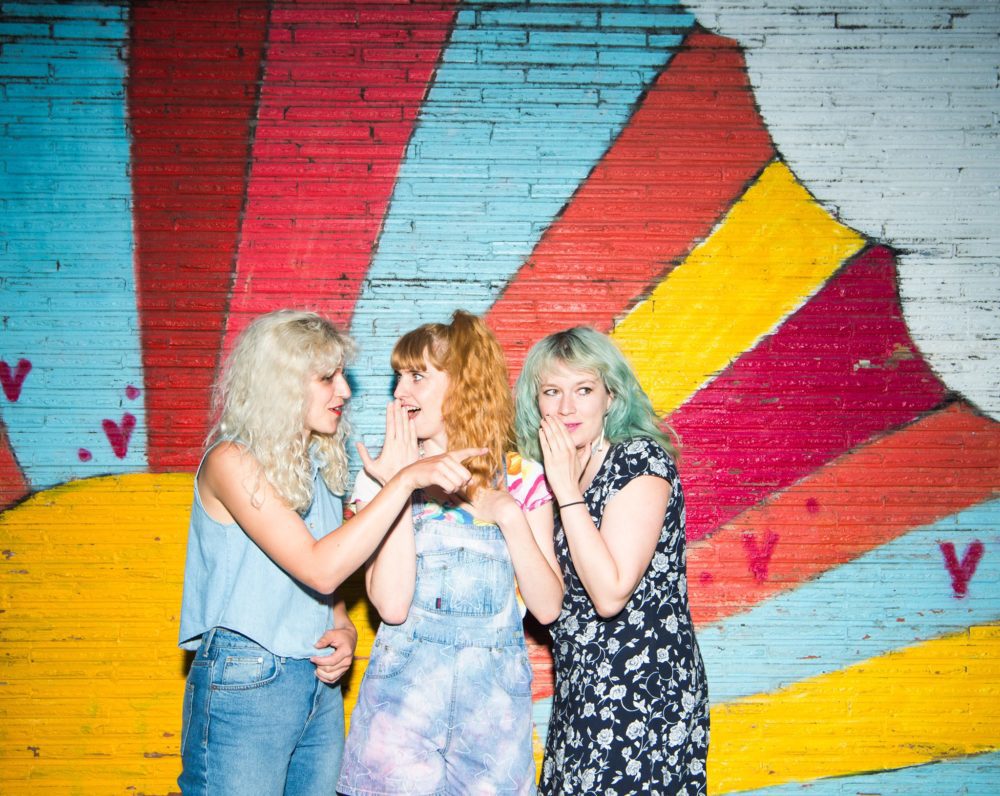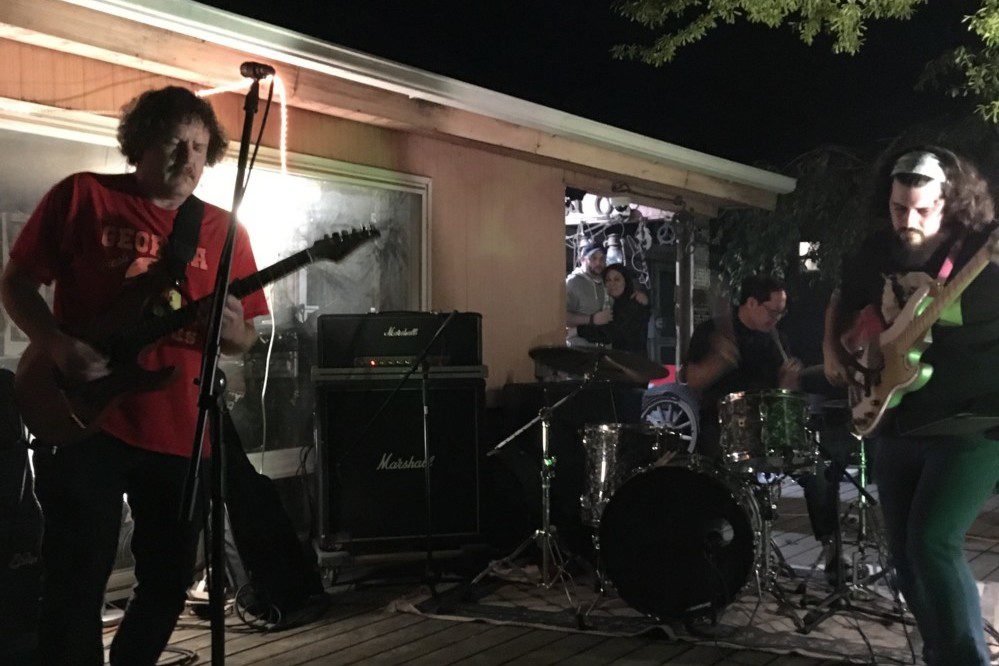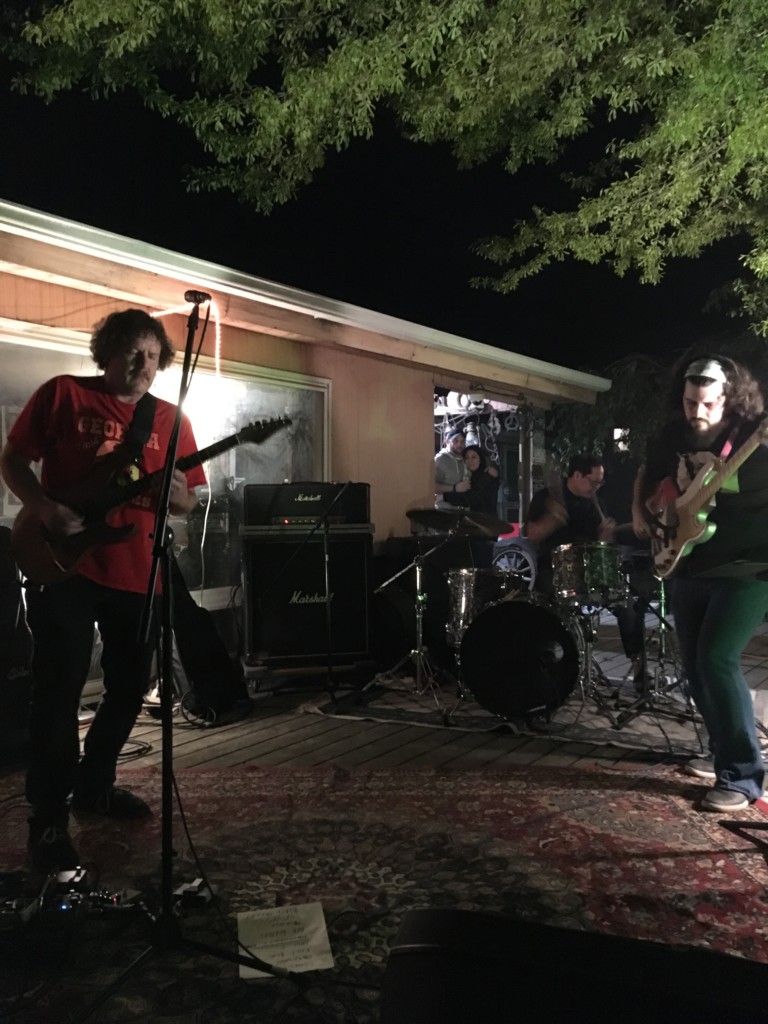

Seattle, the epicenter of the Coronavirus outbreak with more than more than 1,000 cases, has now been on social distancing-induced lockdown for about a week now. At first it was just a lot of hand washing and a limit on groups of 250 or more, but now all businesses except the essentials are closed, and all social events are cancelled or postponed until further notice. As if waiting for a bomb to drop, everyone is at home, wading in anxiety, boredom, fear.
What’s more, the economic impact of this time has hit musicians, who make the bulk of their income from performing, touring and teaching lessons, particularly hard. Frantic in the face of tremendous financial loss, Seattle’s local music community has come together in a heartwarming way, creating many fundraisers, offering to teach each other how set up their teaching studios on Skype, and starting live-streamed shows and concert series with “virtual tip jars” to help people make up their losses.
Many artists have been using this time to write new material, as well. And, as history has shown us, hard times in seclusion make for amazing art—and some great songs are already trickling in. Here are some of those brilliant new pandemic-inspired pieces, written and recorded by local Seattle artists in the last few weeks (except one). Each artist has also contributed a little reflection about their songs and this bizarre time—the humor in the constant hand washing, the anxiety in being cooped up, the fear of what’s to come—and their melodies act as a reminder for Seattle and the world: We’re still here, we’ll get through this, and we’re all in this together.
“Social Distancing” by Seattle punk trio, Who is She?
“We made this Saturday night because it was our last night with Julia before she moved to LA. We were gonna go to dinner but we canceled because we didn’t want to go out and be irresponsible and knew it was better to social distance. So we stayed in and made this. We didn’t really intend for it to be a real song. Now we are all unemployed and can’t play shows anymore!”
“Thanks, Friend, for Checking in,” by singer-songwriter Micah Jerome Ellison
“I live alone in a small apartment, and I was sent home from work last week. I thought I was doing fine until a friend checked in on me, and as we shared our feelings about the pandemic, we became aware of the dull roar of anxiety that we each felt. I wanted to capture that in a song while expressing gratitude for my friends. And I hope that people listening to this will consider checking in on their friends, especially the ones that live alone.
Musically: I arranged the accompaniment in stacked fifths, a wide position on the piano, like my fingers are doing their own social distancing from each other. The first and last stanzas of the lyrics mirror each other like a reciprocal conversation. And the last note is the major 7th, typically a pleasing, relaxed note, but there’s a sense of emptiness in it without any accompaniment: the conversation’s over, and here I am again, alone in my apartment, wondering how long this will last.”
“Wash Your Damn Hands” by folk musician Jacqui Sandor
“I’m a folk musician and I’m very interested in how circumstances bring about new songs. I’ve been watching my friends write awesome music about being quarantined recently. It’s pretty incredible how fast things are changing every day in relation to this pandemic, and I knew that when I wrote this song so I put it out quickly (note that I’m wearing a Huggle in the video and wearing a ponytail because I didn’t even want to waste the time putting real clothes on). I had seen a few articles about people being bored with the Happy Birthday song so as a joke I quickly sketched out some verses about other problems people in my generation are facing. I’m looking forward to all the new songs coming out of this, and also to seeing how this pandemic will change music education and the way we consume live music.”
“Sketch #4” by electronic artist Tiffiny Costello of Housekeys
“With the Coronavirus infecting and uprooting every part of our lives, it is easy and natural to feel hopeless. I deal with depression, anxiety, and attachment issues, so naturally I am having all sorts of emotional reactions to the doom and gloom in the world today.
As a sober person, I can’t grab a glass of wine to self-medicate anymore (but I do grab a can of Diet Coke). Housekeys exists as my main music project and as an emotional outlet for me to express something when I feel too much of it. Making music is one of my coping skills, so I recorded this ambient improvised sketch while playing live on Instagram a few days before Jay Inslee announced that all our bars, restaurants, etc be shut down. I was feeling panicked, alone, abandoned, and fearful about the uncertain future for everyone. What I needed was hope, and expressing that through music helped me find it, plus the live-streaming helped me share it with others.”
“Alright” by singer-songwriter Tekla Waterfield
“I haven’t really been allowing myself to fully comprehend the weight of what’s happening in the world right now because of this pandemic. But last night, I went deep. I read some articles and fully absorbed the comments and posts my friends and peers have put up on social media expressing outright panic over losing jobs and livelihoods. It’s a lot for all of us to process right now. I woke up this morning feeling really heavy.
Thankfully I have a wonderful partner. We’re not sure what our next steps will be with all gigs, public events, tours aka all of our work stopping for now. But we’re okay for the moment. A month from now….? It’s scary.
Anyhow. I wrote this song on Tuesday morning. I asked my honey Jeff to sit in on vocals and dobro. Hope you are all hanging in out there. Sending love. ❤”
“Pandemic Journal” by electronic artist Kaley Lane Eaton
“Pandemic Journal was started mostly as a way to keep myself sane amongst this wild uncertainty, and to hold myself accountable to do something expressive every day. I’ve struggled with allowing myself to make solo work – I’m a composer that has worked through commissions and collaborations for my entire career, but being forced into social isolation was a sign that it was time to shift gears. I’m also overwhelmed with massively complicated feelings and anxieties about how this situation is catastrophic to the working class and my beloved city of Seattle, but that it might be healing to the earth and to our ingrained patterns of harm as we’re forced to slow down. When those feelings reach a peak, I try to avoid thought and language and just tap into the well of universal emotion and the cosmic sound world. ”
“Broken Time” by rock band Fraktal Phantom
“I wrote the lyrics for this tune about the societal issues around things like pandemics, disasters, war. It’s also about how to make things right when said politics are always bad. Sean Fisher wrote the music.” – Jack Gold-Molina, drummer and lyricist
“Song From Shed” by songwriter Mike Dumovich
“I woke up last Monday at about 4 in the morning with the fear—my brain was like pop rocks and I just needed to get quiet. So, I forced myself to play a slow chord once. Then another. It really kind of came out at once.”
“Ottosbits” by musician Simon Henneman
“Obviously this is a very surreal time and the challenge of surviving in the face of what is to come is scary. Not just the virus and the possibility of getting sick, but the financial uncertainty and how to maintain community when there are no gigs and no practices with people. It was really nice to be able to take a break from obsessively tracking the news and mentally and emotionally preparing for what’s still ahead of us to work on something fun and kind of totally out of my wheelhouse. My creative effort on this one is mostly done, but it’s not finished yet: I’ll be sending it to fellow musicians in isolation to add their own parts and voices to it and am excited for what it will become.”
“Make It Through Tonight” by singer-songwriter Aaron Shay
“Several years ago, a friend called me in a terrible crisis. We talked for a while, and after they hung up, I wasn’t sure if I had helped them hold on to life. The song began to take shape, then, although I didn’t finally finish it until last year. And now, there’s a kind of symmetry… Just as I’m deciding how to release this song, the whole world undergoes a terrible crisis like we’ve never seen. I’m happy to say that friend is still alive. They deserve a good life, just as we all deserve a just society.”



